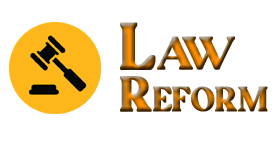Property law plays a crucial role in the world of real estate, whether you are buying a home or investing in properties for financial gains. Understanding the basics of property law is essential for navigating the complex legalities associated with property ownership. In this article, we will provide you with an introduction to property law, explain its importance, discuss key terms, explore different types of property laws, delve into the rights of ownership, and touch upon how to navigate property law disputes.
Understanding the Basics of Property Law
Definition and Importance of Property Law
Property law encompasses a set of legal rules and regulations that govern various aspects of ownership, transfer, and use of real and personal properties. Real properties include land and any structures or improvements attached to it, while personal properties consist of movable assets such as furniture, vehicles, and personal belongings.
Property law is crucial for maintaining order and protecting the rights of individuals and businesses who own or have an interest in land and properties. It provides a legal framework for property transactions, defines the boundaries of ownership, and establishes guidelines for resolving disputes that may arise between parties.
Key Terms in Property Law
In order to comprehend property law fully, it is important to familiarize yourself with some of the key terms commonly used in this field:
- Tenure: The type of ownership or interest an individual or entity has in a property, whether it is freehold or leasehold.
- Deed: A legal document that transfers the ownership of a property from one party to another.
- Lien: A claim or charge on a property as security for the payment of a debt or performance of an obligation.
- Easement: The right to use someone else’s property for a specific purpose, such as accessing a road or utility lines.
- Encumbrance: A legal claim or right on a property that affects its value or restricts its use, such as a mortgage or a restrictive covenant.
Understanding the different types of tenure is essential in property law. Freehold tenure grants the owner full and absolute ownership of the property, allowing them to use, sell, or transfer it as they see fit. On the other hand, leasehold tenure involves a lease agreement between the owner of the property (known as the lessor) and the person or entity who wants to use the property (known as the lessee). The lessee has the right to use and occupy the property for a specified period, but ownership remains with the lessor.
When it comes to property transactions, the deed plays a crucial role. It is a legal document that serves as evidence of the transfer of ownership from one party to another. The deed typically includes details such as the names of the parties involved, a description of the property, and any conditions or restrictions that may apply.
Liens are another important concept in property law. They serve as a form of security for creditors, ensuring that they have a claim on the property in case the debtor fails to fulfill their financial obligations. For example, if someone borrows money to purchase a property and uses the property as collateral, the lender may place a lien on the property until the debt is repaid.
Easements are rights granted to individuals or entities to use someone else’s property for a specific purpose. This could include accessing a road, installing utility lines, or even using a portion of the property for recreational activities. Easements are typically created through a written agreement between the parties involved.
Lastly, encumbrances are legal claims or rights that can affect the value or use of a property. Common examples of encumbrances include mortgages, which give the lender a claim on the property until the loan is repaid, and restrictive covenants, which impose certain restrictions on how the property can be used.
By understanding these key terms in property law, individuals and businesses can navigate property transactions and resolve disputes with a greater level of confidence and clarity.
The Role of Property Law in Real Estate
Property Law and Home Buying
For homebuyers, property law ensures that the process of purchasing a property is legally valid and protects their rights as owners. It involves conducting due diligence, such as title searches, to ensure that the property is free from any liens or encumbrances. Property law also governs the negotiation and preparation of sales contracts and facilitates the transfer of ownership from the seller to the buyer.
Additionally, property law regulates the rights and responsibilities of homeowners, including land use regulations, zoning laws, and building codes. It provides a legal framework to handle issues such as property maintenance, boundary disputes, and homeowner association regulations.
Understanding property law is crucial for homebuyers to make informed decisions and protect their investments. By being aware of their legal rights and obligations, homeowners can avoid potential disputes and ensure a smooth ownership experience. Property law also plays a significant role in shaping the residential real estate market by establishing standards for property transactions and ownership rights.
Property Law and Real Estate Investing
Property law is equally important for real estate investors, who often acquire multiple properties for rental or resale purposes. Investors must have a solid understanding of property laws to navigate complex transactions, negotiate leases, comply with housing regulations, and protect their investments.
Furthermore, property law provides investors with the legal tools to maximize the profitability of their real estate portfolios. It enables them to leverage financing options, establish property management agreements, seek insurance coverage, and manage risks associated with property ownership.
Real estate investors rely on property law to structure their investments effectively and ensure compliance with legal requirements. By staying abreast of property laws and regulations, investors can mitigate potential legal challenges, optimize their investment strategies, and safeguard their financial interests in the dynamic real estate market.
Different Types of Property Laws
Personal Property Laws
Personal property laws govern the legal rights and obligations associated with movable assets that individuals or businesses own. These assets can include vehicles, jewelry, artwork, and other tangible or intangible items. Personal property laws regulate issues such as ownership transfer, repossession, sales contracts, and intellectual property rights.

It is important for homebuyers and investors to understand personal property laws, especially when it comes to issues like home furnishings, appliances, and fixtures, which may have different legal implications compared to the real property they are associated with.
Personal property laws also encompass the concept of chattel, which refers to movable personal property that is not attached to real estate. This category can include items such as furniture, clothing, and electronics. Understanding the distinctions between real property and chattel is crucial for individuals and businesses when it comes to legal rights and responsibilities.
Real Property Laws
Real property laws focus on legal issues concerning land and any permanent structures or improvements attached to it. These laws vary between jurisdictions, but common topics include ownership rights, property taxes, zoning regulations, and land use restrictions.
Whether you are buying a residential property or investing in commercial real estate, understanding real property laws is essential for ensuring compliance with local regulations and protecting your interests as an owner or investor. Learn more about how to choose the best property lawyers in Sydney.
Real property laws also delve into the complexities of easements, which are legal rights to use another person’s land for a specific purpose. Easements can be affirmative, granting the right to use the land for a particular activity, or negative, restricting certain uses of the land. Navigating the intricacies of easements is crucial for property owners to avoid disputes and ensure smooth land usage.
Property Law and Rights of Ownership
Understanding Freehold and Leasehold
In property law, there are two main types of ownership: freehold and leasehold. Freehold ownership grants the owner permanent rights to the property, subject to government regulations and any encumbrances like mortgages or easements. This type of ownership is often seen as the most secure form of property ownership, as it provides the owner with full control over the property without a predetermined expiration date.
Leasehold ownership, on the other hand, grants the owner a temporary right to use and occupy the property for a specified period as outlined in a lease agreement. While leasehold ownership offers more flexibility in terms of short-term commitments, it also comes with certain limitations and restrictions compared to freehold ownership.
Understanding the differences between freehold and leasehold ownership is crucial, especially when it comes to long-term investments and the rights and responsibilities associated with each type of ownership. Property owners must carefully consider their goals and priorities when choosing between these two forms of ownership to ensure that their interests are protected in the long run.
Rights and Responsibilities of Property Owners
Property owners have certain rights and responsibilities that are protected by property law. These include the right to exclusive possession of the property, the right to use and enjoy the property within legal boundaries, the right to sell or transfer the property, and the right to challenge any encroachments or infringements on their property rights.
At the same time, property owners have responsibilities such as paying property taxes, maintaining the property in a safe and habitable condition, abiding by zoning regulations, and respecting any legal restrictions or agreements that may affect their ownership. These responsibilities are essential for upholding the value and integrity of the property, as well as ensuring compliance with local laws and regulations governing property ownership.
Navigating Property Law Disputes
Common Property Law Disputes
Despite the best efforts of property owners and stakeholders, disputes can arise in real estate transactions or property ownership. Common property law disputes include boundary disagreements, breach of contract claims, landlord-tenant disputes, and disputes over property title, easements, or encumbrances.

It is important to approach property law disputes with a clear understanding of the legal principles involved and seek professional legal advice if necessary. Mediation, arbitration, or litigation may be required to resolve the dispute and protect your rights as a property owner or investor.
Resolving Property Law Disputes
Resolving property law disputes can be a complex and time-consuming process. It is advisable to first attempt informal negotiations or alternative dispute resolution methods like mediation or arbitration. If these methods fail, seeking legal representation and pursuing litigation may be necessary to protect your rights and interests.
Property law disputes can have significant financial and emotional implications, so it is crucial to approach them with careful consideration and proper legal guidance.In conclusion, property law is a fundamental aspect of real estate that affects homebuyers, investors, and property owners alike. Understanding the basics of property law, including its definition, key terms, and different types, is crucial for navigating the complexities of property ownership and transactions. It is equally important to comprehend the rights and responsibilities of property owners and know how to navigate property law disputes. By familiarizing yourself with property law and seeking proper legal advice when needed, you can confidently engage in real estate endeavors and safeguard your interests in the ever-evolving world of property ownership and investment.




